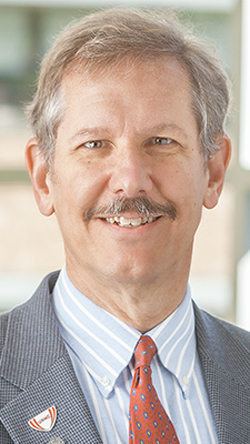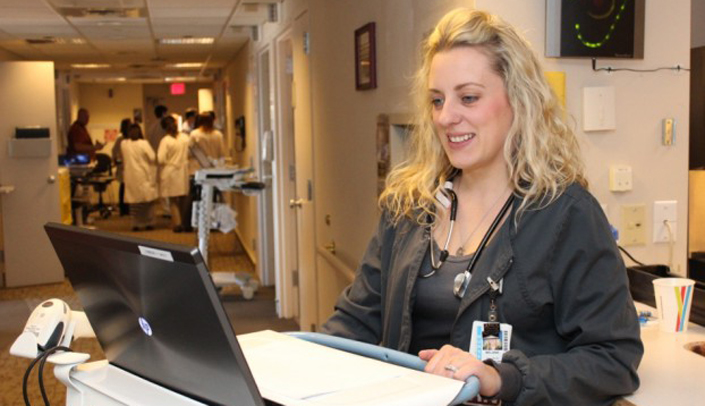Stress. It’s something all of us cope with. Some of us experience more stress than others, but we all have it. Working in health care presents its own unique stress factors. In patient care, you have a person’s wellbeing at stake and over time, it can take a personal toll.
“It’s called ‘compassion fatigue,'” said Steven Wengel, M.D., chair of the UNMC Department of Psychiatry. “When a patient is suffering, it’s difficult not to feel that personally. In school, health care workers are trained to be objective, to maintain a professional distance. But it still takes a toll.”
 |
Steven Wengel, M.D. |
“Chronic stress has been shown to shrink the hippocampus, which is an important structure for short-term memory formation,” he said. “Stress factors also can cause clinicians to be distracted and miss changes in a patient’s condition.”
The unique and fast-changing environment of health care today is adding to the stress. Our clinical staff made the transition to an electronic health record (EHR) in 2012, which was no easy task, often resulting in feelings of frustration.
In times of rapid change, such as the enterprise’s ongoing clinical transformation, Dr. Wengel said it’s not unusual that people feel more stress.
“Life in general is more stressful across the board,” Dr. Wengel said. “A New York Times study revealed the number of words a person processes each day is three-and-a-half times what it was in 1980. The human mind is not equipped to multi-task. One hundred thousand words a day — that’s a lot of work you’re asking your brain to do. It leads to restlessness and distraction.”
All of this can impact our brain in a negative way.
“I began thinking about all of this and wanted to offer a way to help our colleagues cope with these stress factors,” he said.
Dr. Wengel and his colleague, Bill Batey, medical social worker and psychotherapist, plan to offer a series of stress-coping classes this fall, free of charge. This series will offer insight into the impact of stress on your brain and will focus on coping techniques to reduce stress and improve your health and sense of well-being.
If you are interested or would like more information, please e-mail Maggie Milner.
